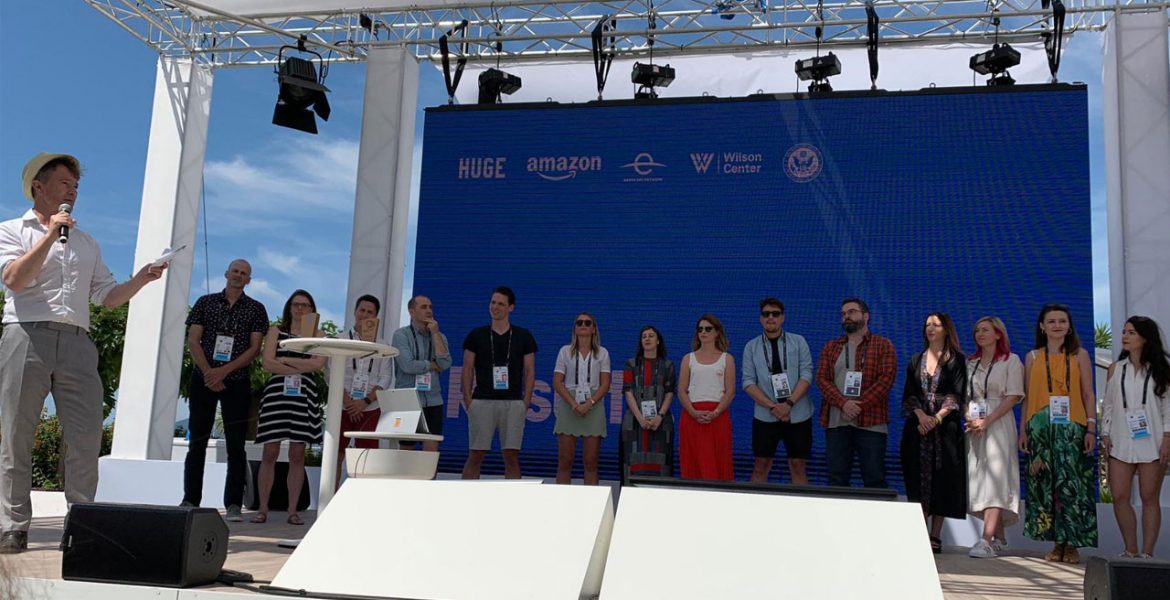AW360 sat down with Rob Bennett, CEO of Rehab – the winners of the Amazon Change for Good Hackathon at the Cannes Lions International Festival of Creativity.
Q: How did Rehab initially get involved with the Change for Good hackathon, and why was it an important cause for them?
At Rehab, we have internal hackathons once a year. We shut the business for two days to explore new ways of using innovative tech to solve real-world problems. So when Amazon told us about the competition at Cannes, we knew we were well suited to take part and make a change. We hoped our combined passion for innovation and helping the environment would increase our chances of standing out.
As we’re based in London, we understand the severity of air pollution. It’s something high on the agenda for both our city and our company. We were keen to use new technology to help understand and improve pollution.
Q: How did Rehab initially come up with the #their concept and why?
Earth Day Network is leveraging emerging technology and the Citizen Science initiative to engage one million people across the globe in the 50th anniversary Earth Challenge 2020 – contributing one billion data points to help us have a greater understanding of air quality, water quality, pollution and human health.
We came across a study that found that photographs can be used to identify air pollution by identifying light scattering on the particulate matter in the air. This sparked the idea that we could tackle the invisible killer of air pollution, with a very visual solution.
Everyone can take a photo of their local skyline and submit it to Earth Challenge 2020 as a valuable data point. We proposed using a machine learning algorithm to evaluate each image for air quality, initially against data from high quality air sensors around the world. Over time, it should be able to analyse the photographs to accurately produce an air pollution reading and report back to the contributor in real time.
People are continuously moving to cities for work and money, so they are increasingly and often unknowingly subjecting their families to pollution. We believe that if people understand the impact that air pollution will have on the environment and health in the future, they will act now to help generations to come.
Q: What previous work of Rehab’s helped them develop the idea?
At Rehab, we experiment with a lot of new tech, including computer vision, machine-learning algorithms, app development, and voice.
Last year we created a voice action called ‘Recycle That’, as an internal project resulting from one of our hackweeks. Our research showed that one of the main reasons that people weren’t recycling as much as they should was because they didn’t know what they could and couldn’t recycle. So, we created an action that offers local information about recycling and helps people increase their recycling habits.
We’ve also done a lot of work prototyping image recognition experiences for clients we work with, and others during our regular research and development hack weeks. This includes an experience for a beauty brand that allows you to point your camera at their product packaging to receive more information.
Q: What are the benefits of using photography as an asset to help with the tech?
Taking photos has become second nature to many of us, thanks to the rise of smartphones and us all having a good-quality camera with us at all times. Reportedly, 14 trillion photos are taken a year, so we saw an opportunity to capitalise on this human habit.
The main benefit of using photography as an asset is the extremely low barrier to entry. It’s an easy ask to take one more photo and sharing an image through WhatsApp is a very low friction activity. Although an app is part of our full concept plan, allowing people to share photos as data through existing messaging channels (including SMS for those that don’t have internet access) makes it extremely easy for everyone to take part.
Q: Which age demographic is the project aimed at, and could this change/expand?
Earth Day Network want to engage as many people as possible to help reach the target of collecting 1 billion data points for Earth Challenge 2020.
In the autumn, we’ll start by targeting a relatively small pool of people, focusing on schools and families, through local PR and leveraging relevant influencers, local government and other organisations.
As Earth Day 2020 approaches we’ll open up the campaign to the wider public with a global campaign, encouraging everyone to do their bit locally to help combat the world-wide air pollution problem.
Q: What are Rehab’s plans for the future in regard to bringing this project to life?
The Rehab Cannes Hackathon team are working closely with the Earth Day Network and other partners to make the concept a reality. Rehab are leading the creative and overseeing the technical development – bringing together all our skills as a creative tech agency to achieve the shared goal by Earth Day 2020.
Hackathon talent includes: Beth Abel, Camille Bourdier, Claire Medcalf, Neil Cooper and Ryan Grieve.

